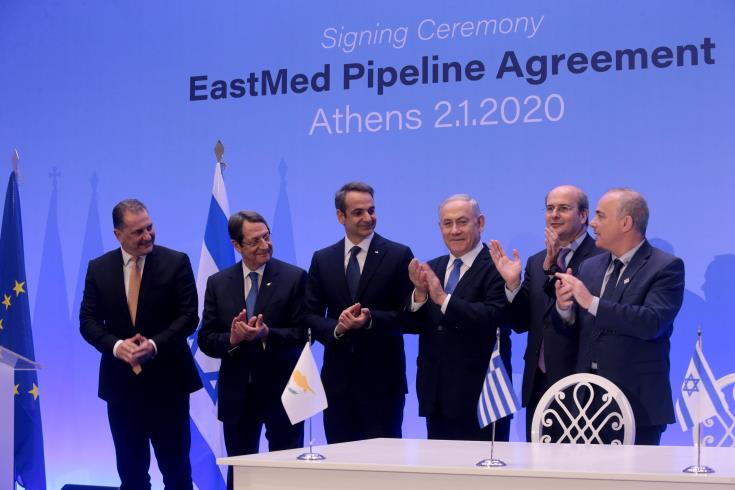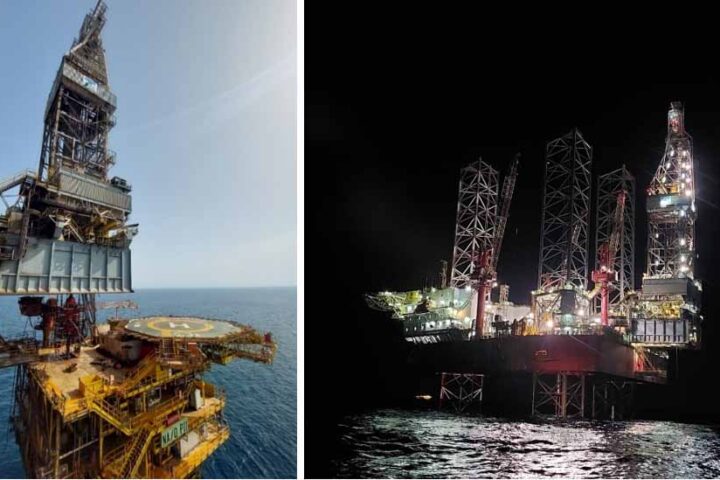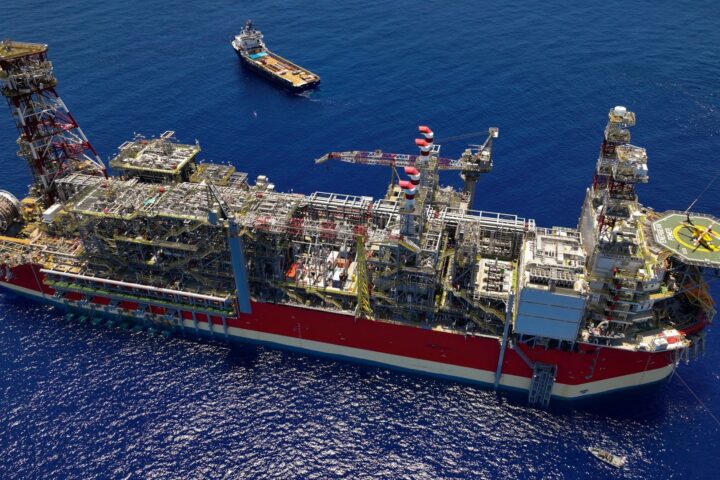The US no longer supports the ambitious EastMed natural-gas pipeline from Israel to Europe; the Biden administration has informed Israel, Greece and Cyprus, a diplomatic source told the Jerusalem Post.
State Department officials conveyed the new position to the Israeli Foreign Ministry.
Former US secretary of state Mike Pompeo and former energy secretary Dan Brouillette expressed US support for the pipeline.
But Washington informed Athens it was reversing course from the Trump administration in a “non-paper,” a diplomatic term for an unofficial, or off-the-record, communication this month.
“The American side expressed to the Greek side reservations as to the rationale of the EastMed pipeline, [and] raised issues of its economic viability and environmental [issues],” a Greek government source told Reuters.
“The Greek side highlighted that this project has been declared a ‘special project’ by the European Union, and any decision on its viability will logically have an economic impact,” the official said.
The EastMed pipeline, meant to transfer natural gas from Israeli waters to Europe via Greece and Cyprus, was announced in 2016, and several agreements have been signed between the three countries.
The three states aimed to complete the €6 billion project by 2025, but no financing has been secured.
The US Embassy in Jerusalem said that the Americans “remain committed to the energy security and connectivity of the Eastern Mediterranean.”
Proposals the US supports is the EuroAsia interconnector linking Israeli, Cypriot and European electricity grids, “allowing for future exports of electricity produced by renewable energy sources, benefiting nations in the region.”
The interconnector “would not only connect vital energy markets but also help prepare the region for the clean energy transition,” the embassy said.
The US Embassy also said this is “a time when Europe’s energy security is – more than ever – a question of national security.”
And the US is “committed to deepening our regional relationships and promoting clean energy technologies.”
The US Embassy in Greece made a similar statement last week, saying Washington still supports the 3+1 mechanism of meetings between Israel, Greece, Cyprus and the US.
Cyprus
Cyprus’ energy plans will be implemented most appropriately in the best interest of its people with other friendly cooperating countries; President Nicos Anastasiades said this week.
In a written statement on the EastMed pipeline, the President said the political will and decision of Greece, Israel, and Cyprus on the issue were subject to the studies of economic viability, submarine morphologies, and the project’s environmental impact.
“The EastMed pipeline has been approved by the EU as a Project of Common Interest, as it contributes to Europe’s energy security, which is why European funds bore the cost of studies.
“Sadly, some people are happy because the execution of the project has been allegedly cancelled,” said Anastasiades.
He said the countries involved and the European Union have worked out alternatives in case the project is considered unfeasible for any reason.
Greece, Cyprus and Israel signed an intergovernmental agreement to construct the EastMed pipeline in Athens on 2 January 2020.
In recent years, claims over natural gas in the Eastern Mediterranean have been a point of contention with Turkey, with Ankara saying it should be part of the EastMed project.
Turkish President Recep Tayyip Erdogan took the opportunity of the US withdrawing its support to say: “[If Israeli gas] would be brought to Europe, it could only be done through Turkey. Is there any hope for now? We can sit and talk about the conditions.”
Last week, Turkish state media channel TRT aired a documentary opposing the EastMed pipeline titled The Pipe Dream, which includes footage of State Department Senior Advisor for Energy Security Amos Hochstein discussing the matter before he was appointed to his current position.
Hochstein said he would be “extremely uncomfortable with the US supporting this project” because of its environmental implications.
“Why would we build a fossil fuel pipeline between the EastMed and Europe when our entire policy is to support new technology… and new investments in going green and in going clean?” he asked.
“By the time this pipeline is built, we will have spent billions of taxpayer money on something that is obsolete – not only obsolete but against our collective interest between the US and Europe.”
Hochstein said the project was not financially feasible.
The pipeline plan was “totally driven by politics,” but “multibillion-dollar deals should be driven by the commercial side,” Hochstein said.
“This project probably will not happen because it’s too complicated, too expensive and too late in the arch of history.”
Interconnectors
Gabriel Mitchell, director of external relations for the Mitvim Institute for Regional Foreign Policy, said Israel’s relationship with Greece and Cyprus, which has grown very warm in recent years, does not depend on the EastMed pipeline.
“The cooperation between the parties has expanded beyond the narrow scope of an undersea pipeline project, incorporating multiple fields and inter-ministerial cooperation,” he said.
Mitchell said that regarding Israel’s future in exporting natural gas, the EastMed was never its only option.
“The story of the EastMed pipeline should serve as a reminder that these projects require a high level of commercial, technical and political feasibility.
“As one door potentially closes, others could open that present a different but no less important set of commercial and geopolitical opportunities.”
“The EastMed pipeline’s feasibility issues were well-documented, but in the end, it may be other energy initiatives – such as the EuroAsia interconnector – that become the tripartite relationship’s flagship project,” Mitchell said. (sources Jerusalem Post, Reuters)










